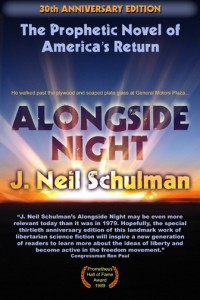
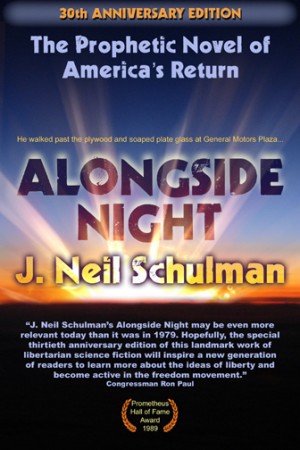
Alongside Night by J. Neil Schulman, so far as I am aware, is still the agorist novel par excellence. More than three decades have passed since its publication — not that you would know it without looking at the copyright date — yet in that time no other novel has so successfully mixed the principles of agorism with such a keen perspective on the future. There are not many novels that can top it for entertainment value either.
The story takes place in what was then the future, but which now seems a very prescient present. Not only is the story filled with theretofore unrealized gadgets and technology that differ from what we actually possess sometimes by no more than an appellation, or occasionally a small feature or manner of use, but the economic conditions described in the tale read like a seer’s forecast.
Schulman’s knowledge of economics allowed him to make a forecast every bit as accurate as the one for which Ayn Rand, in her novel Atlas Shrugged, has been lauded of late. In fact, this very knowledge of economics is probably what helped the author predict all those gadgets, for it is well established that science-fiction authors, a group not known for their economic acumen, tend to think on a grand scale when most of the advances, in a consumer-driven society, are modest devices of everyday convenience and entertainment.
It is a dystopian world we are plunged into in Alongside Night, where central control of the economy and erosion of civil liberties proceed, as they must, hand in hand. When the government abducts the protagonist’s father, a noted free-market libertarian economist somewhere between Milton Friedman and Ludwig von Mises in his radicalness, the high school student Elliot Vreeland embarks on a quest to free him. This quest takes him into the world of the agorists, free-market rebels and masters of counter-economics.
[continue reading…]
Help Promote Prometheus Unbound by Sharing this Post
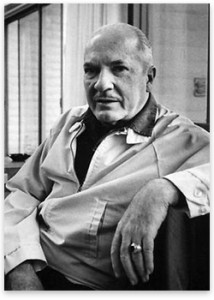
Robert Anson Heinlein (1907–1988)
In this episode of the Libertarian Tradition podcast series, part of the Mises Institute’s online media library, Jeff Riggenbach discusses the life of Robert Anson Heinlein (1907–1988), author of The Moon Is a Harsh Mistress and many other wonderful novels and short stories, and addresses the question of whether Heinlein was a libertarian.
You can also read the transcript below:
When Robert Anson Heinlein died 22 years ago this month, in Carmel, California, at the age of 80, the wonder of it all was that he had managed to live as long as he did. Heinlein, who was born in 1907 in Butler, Missouri, a small town about 65 miles south of Kansas City, had been in poor health for most of his adult life.
His family had connections with the powerful Pendergast political machine, the outfit that later put Harry Truman in the US Senate, but Heinlein still had to spend his freshman year in a two-year Kansas City “junior college” — what today we would call a “community college” — before the Pendergast machine was finally able to wrangle him an appointment to Annapolis. After graduating from the naval academy in 1929 with a degree in mechanical engineering, Heinlein went to sea as an officer. But in his fourth year of active duty, he contracted tuberculosis and was honorably discharged — retired, really, with a small pension — after a lengthy hospitalization at Navy expense.
[continue reading…]
Help Promote Prometheus Unbound by Sharing this Post
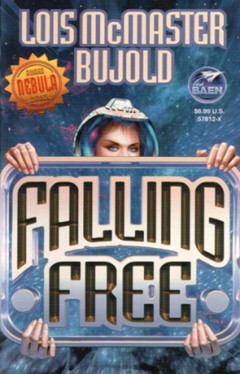
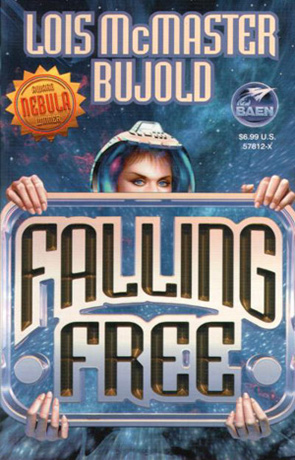 Finalists for the 2012 Prometheus Hall of Fame Award were announced over the weekend.
Finalists for the 2012 Prometheus Hall of Fame Award were announced over the weekend.
As a reminder to our readers, we are open to submissions of reviews (as well as news, articles, interviews). Even if you can’t contribute regularly, we’d like to have a number of part-timers who only contribute occasionally. We’re even open to one-time contributors.
So if you’d like to read and review one of the finalists, nominees, past winners, or another piece of fiction, we’d be happy to consider it for publication.
Below is the full press release from the Libertarian Futurist Society, which presents the Prometheus Hall of Fame Award:
[continue reading…]
Help Promote Prometheus Unbound by Sharing this Post
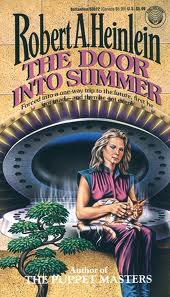
The Door into Summer
The Door into Summer, by Robert Heinlein, is the author’s last adult novel written before his arguably three most famous works: Starship Troopers, Stranger in a Strange Land, and The Moon is a Harsh Mistress. The book benefits from the strong points that every Heinlein novel displays, but in other ways it almost feels like the author was holding back. Like Alfred Hitchcock, Heinlein had some great works mixed in with a lot of decent ones, and the present novel fits squarely into the latter category. In researching it, I came across a quote by John W. Campbell that sums up for me how I feel about certain Heinlein novels, The Door into Summer included: “Bob can write a better story, with one hand tied behind him, than most people in the field can do with both hands. But Jesus, I wish that son of a gun would take that other hand out of his pocket.”
The narrator, Dan Davis, is a gifted engineer who cannot see eye to eye with his business partner and best friend, Miles Gentry. Miles and Dan’s fiancée, Belle, conspire to steal Dan’s company from him and then send him into hibernation for thirty years. He wakes up in the year 2000, destitute, but begins working to build himself back up and maybe get some revenge. Along the way, as Dan investigates what has happened since he was put into the “Long Sleep,” strange clues begin turning up, indicating that there is more going on than he may realize.
[continue reading…]
Help Promote Prometheus Unbound by Sharing this Post
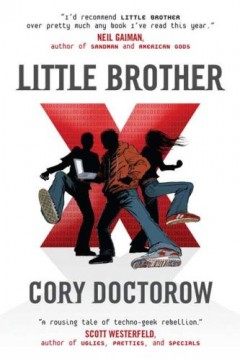
Cory Doctorow’s Little Brother is a tale about tech-savvy teenagers as they rebel against a Department of Homeland Security crackdown following a terrorist attack on San Fransisco. A piece of YA fiction that even adults can enjoy — it’s YA largely because of its teenage protagonists and its educational aim at young people — Little Brother is the 2009 Prometheus Award winner for best libertarian novel. Little Brother also won the John W. Campbell Memorial Award and was a finalist for the Hugo Award.
Little Brother is set entirely in San Fransisco, California, in the very near future. Much of the technology in the story is already available, and what is not can easily be conceived as being on the horizon. The story is told entirely in the first person, from the point of view of the main character, Marcus Yallow. Marcus at first goes by the handle w1n5t0n (Winston in leetspeak, a homage to George Orwell’s 1984, as is the title of the book) but later switches to M1k3y (which could be a reference to the computer Mike in Robert Heinlein’s The Moon is a Harsh Mistress).
As the story opens, we are introduced to Marcus and three of his friends — Jolu (Jose Luis), Van (Vanessa), and best friend, Darryl — who ditch school to play an ARG (Alternate Reality Game) called Harajuku Fun Madness in and around the city. They happen to have the misfortune of being in the wrong part of town when terrorists blow up the Bay Bridge. In the chaos and confusion that follows, they get picked up by the Department of Homeland Security and then subjected to several days of interrogation and psychological torture in a “Gitmo by the Bay” before being released (with the exception of Darryl) with threats to keep quiet about their experience…or else. But once set free, Marcus and his friends are disturbed to see their city being turned into a police state.
Marcus resolves to fight back against the DHS, to restore civil rights and liberties and to free Darryl. He soon becomes the unofficial leader of a growing, decentralized movement of rebellious teenagers. But his covert struggle starts to put a strain on his relationships with his family and friends.
[continue reading…]
Help Promote Prometheus Unbound by Sharing this Post
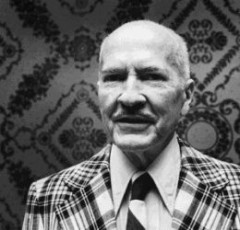
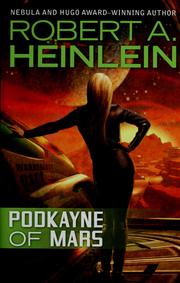 When Robert Heinlein told a tale, it was with a compelling and engrossing voice. He created personalities with interest and depth and fashioned dramatic interactions to keep us involved. However much or little happens to his characters, the experience for us readers is enhanced because we become invested in the people who inhabit his stories. Even a book like Podkayne of Mars, which one might quibble is a touch underplotted, is a satisfying read because of the investment in the people.
When Robert Heinlein told a tale, it was with a compelling and engrossing voice. He created personalities with interest and depth and fashioned dramatic interactions to keep us involved. However much or little happens to his characters, the experience for us readers is enhanced because we become invested in the people who inhabit his stories. Even a book like Podkayne of Mars, which one might quibble is a touch underplotted, is a satisfying read because of the investment in the people.
Podkayne Fries, a girl on the verge of womanhood with dreams of becoming an interplanetary ship captain, is the principle narrator and protagonist of the story. She and her younger brother Clark get an opportunity to accompany their uncle on a voyage to Venus and Earth. Her uncle, however, is an ambassador and there are those who would interfere with his mission, disdaining no despicable act in their attempts. That is about all there is to the story structure. There are a few plot points thrown in – such as the mysterious object Clark smuggles on board, or the solar storm that catches them between planets – and the ending is harrowing, but it becomes clear early on that the novel’s strongest points lie elsewhere.
[continue reading…]
Help Promote Prometheus Unbound by Sharing this Post

















